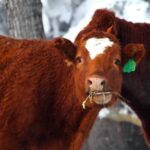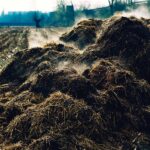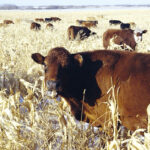I had a National Geographic poster of “Ice Age Mammals of the Alaskan Tundra” on my bedroom wall when I was a kid. It showed herds of prehistoric muskoxen, horses, wolves, lemmings, bears, lions, mammoths, camels, sabre-toothed tigers, mastodons and humans marauding across a vast, grassy expanse 12,000 years ago. The muskoxen, bears, wolves and […] Read more














